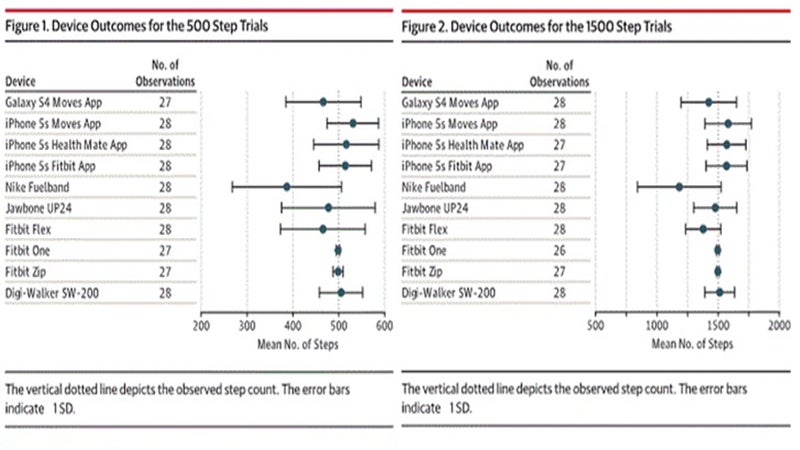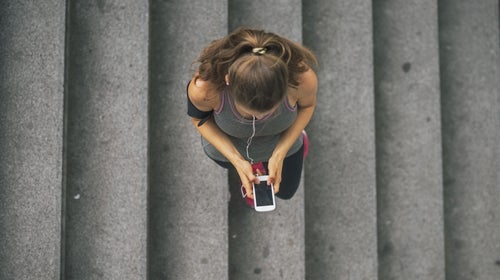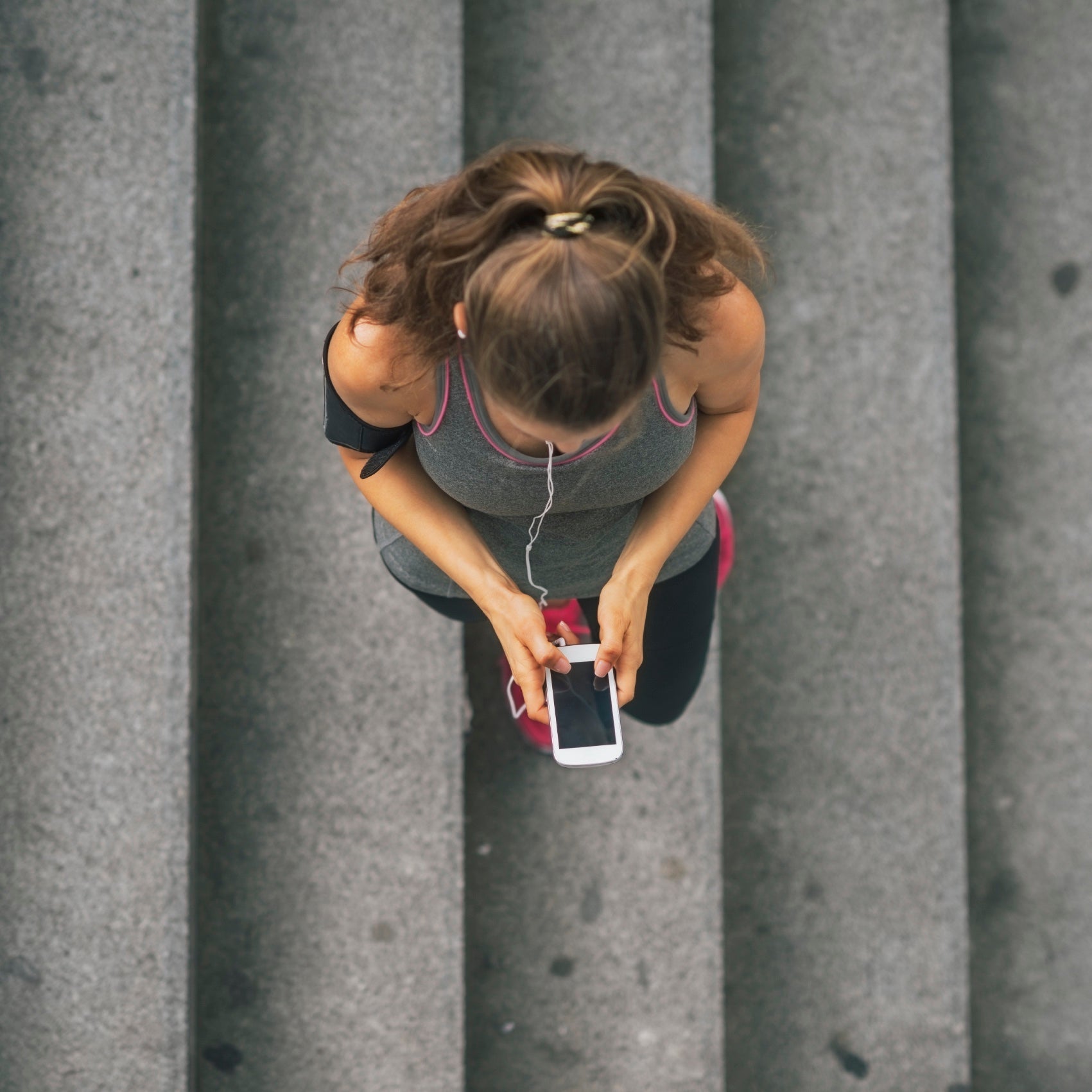A , published this week in the Journal of the American Medical Association, compares the accuracy of wearable devices to smartphones for tracking physical activity. It has a lot of journalists claiming that this heralds the death of the wearable activity tracker. While that makes for a fun headline, everybody needs to calm the hell down. Here’s why.
The study, conducted by researchers at the and the at the University of Pennsylvania, had 14 individual participants walk on a treadmill for 500 and 1,500 steps twice (for a total of 56 trials). They used 10 different devices to track their steps. This included two smartphones running different apps, three wrist-worn devices, two waistband-worn devices, and one waistband-worn pedometer (though it’s not clear what the distinction is between those last two). The comes from the study’s lead author Meredith A. Case: “We found that smartphone apps are just as accurate as wearable devices for tracking physical activity.”
Which is a weird thing to say, considering that’s not what the study found. The study shows that the smartphones were off by -6.7 to 6.2 percent from the actual step-count, whereas the fitness trackers were off by -22.7 to -1.5 percent. So, yes, the smartphones had a smaller spread than the activity trackers on average, but look at the actual data here.

What you see above is that while the Nike Fuelband was indeed inaccurate (which is something we’ve known for years), and the aging Fitbit Flex wasn’t so great either, the Jawbone UP24 actually out-performed all the smartphones in the 1,500-step test. But that’s just the wrist-worn trackers. When you look at the two trackers you wear on your hip or in your pocket (the Fitbit One and the Fitbit Zip, both of which are now more than two years old), you can see that the these trackers were actually more than three times more accurate than the phones.
Let’s ignore for a moment the fact that the study was conducted entirely with old, outdated devices. What we are dealing with here is a very small sample size of devices. Only two phones (old) were tested? Only a handful of (old) trackers? The idea that you can draw any real, scientific conclusions from this tiny set of data is laughable. Anecdotally, while I was testing the new I carefully counted 1,000 steps and found that it was only off by five. In other words, it was off by -0.5%. That’s pretty damn good.
[quote]Even if phones were better at counting your steps (which this study doesn’t prove), a wearable device that monitors your heart is going to give you a better picture of your health.[/quote]
But it’s silly to get caught up in this argument anyway. This study measured how well activity trackers count steps versus how well phones count steps. This is pointless: Step counting is a very poor way to measure your fitness or even daily activity levels. Most don’t account for how steep a grade you’re going up or down, or whether you’re taking stairs, and none are any good if you’re riding your bike, working out with weights, rowing, skinning up a mountain, or doing anything that isn’t walking or running. And this is where the new class of activity trackers blow phones out of the water.
The latest bunch of trackers, including the Fitbit Charge HR, the Basis Peak, the upcoming Jawbone UP3, the Apple Watch, and even the Moto 360 smartwatch, all have built-in heart rate monitors. By watching your pulse 24/7 these wearables give you a far more accurate estimate of you actual activity levels and real caloric burn. Biking, running, rock climbing, pilates, having sex, it doesn’t matter, it will track your heart rate through all of it. And most of these devices cost less than $200.
The bottom line is that even if phones were better at counting your steps (which this study does not prove), a wearable device that monitors your heart is going to give you a far better picture of your health, and that’s what it’s all about. Until smartphones can constantly monitor your biometrics through your pants pocket, they don’t stand a chance.


